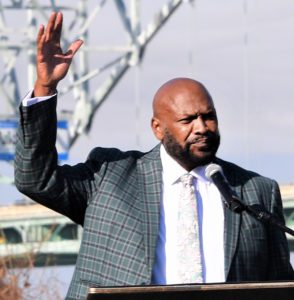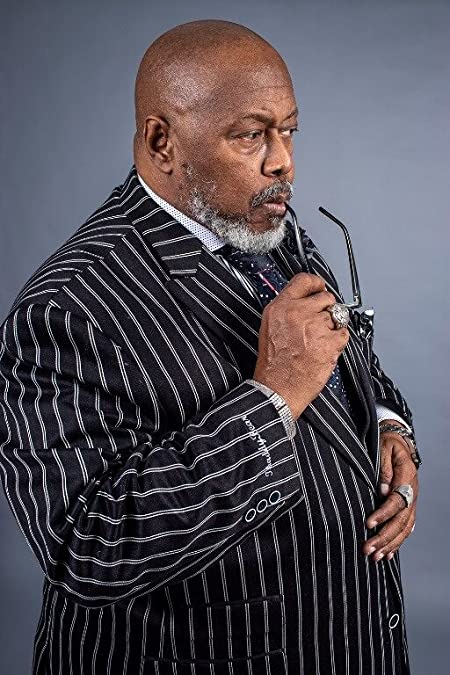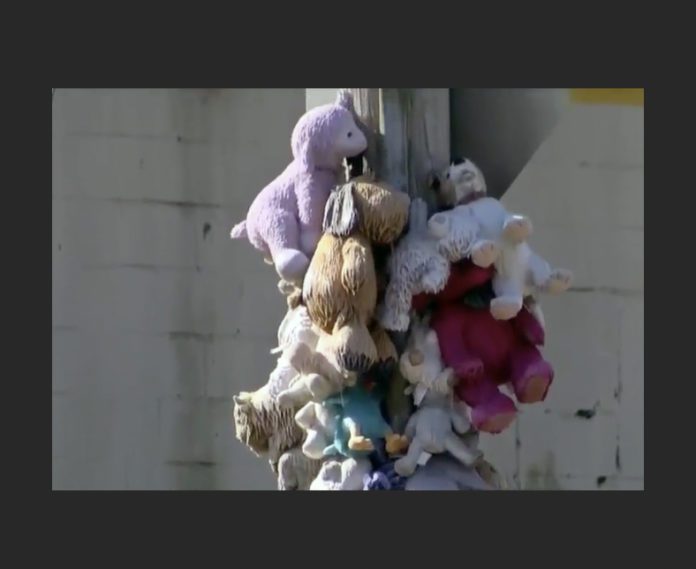With Memphis grappling with skyrocketing homicides and deadly waves of violent crime, while also being named America’s most dangerous city, God’s people must pray for Memphis.

“Getting that report (most dangerous city) mustn’t make us lose hope,” said the Rev. Ricky Floyd, pastor of Pursuit of God Transformation Center in Frayser.
“Hope deferred makes the heart sick, the Bible tells us. There must be a paradigm shift. There must be a change of mind. Not only must the Christian body unite in prayer, but we must break this ‘no snitch’ policy.”
Floyd said much of the crime occurring in the city can be solved by people, who know what happened, coming forward to tell the truth.
“You’ve got to reveal so we can be healed,” said Floyd. “Thaddeus Matthews and I were just talking about this. The protection of women and children in our communities has moved to protecting the criminals.
“Right up here in Frayser, a 56-year-old grandmother was shot and killed, with a baby in her arms. Fifty or 60 people saw what happened. But no one will say anything. This lady didn’t have nothing to do with nothing. This has got to stop.”
The use of data from the FBI’s 2020 Uniform Crime Report (UCR), news analysis and commentary site 24/7 Wall St., identified Memphis as the most dangerous metro area in the United States.
Shock jock and self-styled activist Thaddeus Matthews said breaking the “no snitch” code in Memphis will go a long way to freeing the city from the stranglehold of crime.

“Pastor Floyd and I want to work on a program that lets people know it’s alright to inform law enforcement,” said Matthews, who also is a pastor.
“We must reveal and heal our city. We can rid ourselves of the criminal element in our communities by standing up and doing what is right. We want billboards all over the city with that message. We have the power to take back our communities.”
More than 18,000 violent crimes, or 1,359 for every 100,000 people, landed Memphis in the undesirable number one spot. That number is three times the national average.
According to the UCR, violent crime is composed of four offenses: 1) murder and nonnegligent manslaughter; 2) forcible rape; 3) robbery, and 4) aggravated assault. These offenses are considered “violent” because they involve force or threat of force.
The analysis said poverty is a strong driver of high crime rates. Low-income communities disproportionately are riddled with crime.
Families with incomes less than $15,000 annually are three times more likely to be victimized than households making $75,000 or more, according to one study.
Floyd agrees that poverty is a decisive factor in producing high crime.
“Poverty is certainly an important element in crime. We’ve been struggling with widespread poverty for so many years. But mental health is an issue, as well,” said Floyd.
“When we launched Memphis Prayer 365, we know that prayer must go along with our other efforts. Each one of the anchor churches is involved in housing, mental health assistance, employment, mentoring, feeding. Prayer must be combined with other things.”
One of the city’s most heartbreaking tragedies happened on Christmas Day in Orange Mound. Artemis “Sean” Rayford, 12, was sitting inside his home playing with his new games when bullets suddenly came through the family home. One of those stray bullets hit Sean in the chest, killing him.
Memphis police said the official report cannot be released since the investigation is ongoing. The boy was a seventh-grader at Sherwood Middle School.
According to the family, a man was running across the yard from the shooter when several bullets hit the front of the house. Sean became the 30th homicide of a minor child this year in Memphis.
The family also released photos and videos of Sean dancing amid cheers from loved ones and friends.
On Wednesday (Dec. 29), there were a record-breaking 339 homicides logged in Memphis, seven more than last year’s total, which was also a record.




